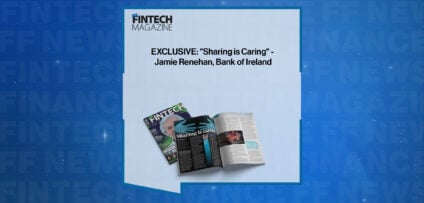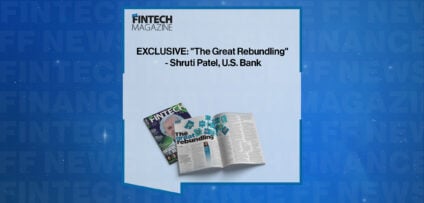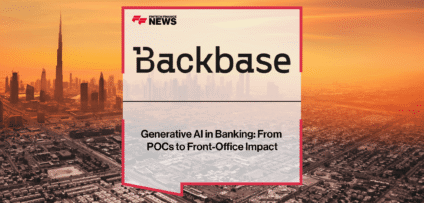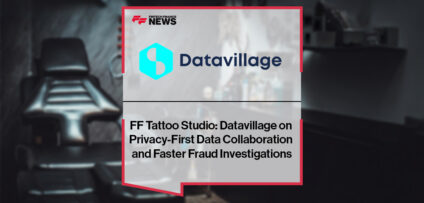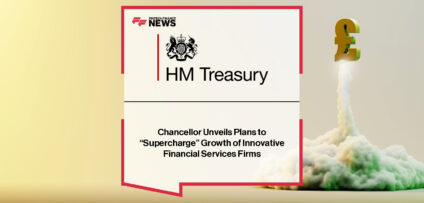Breaking News
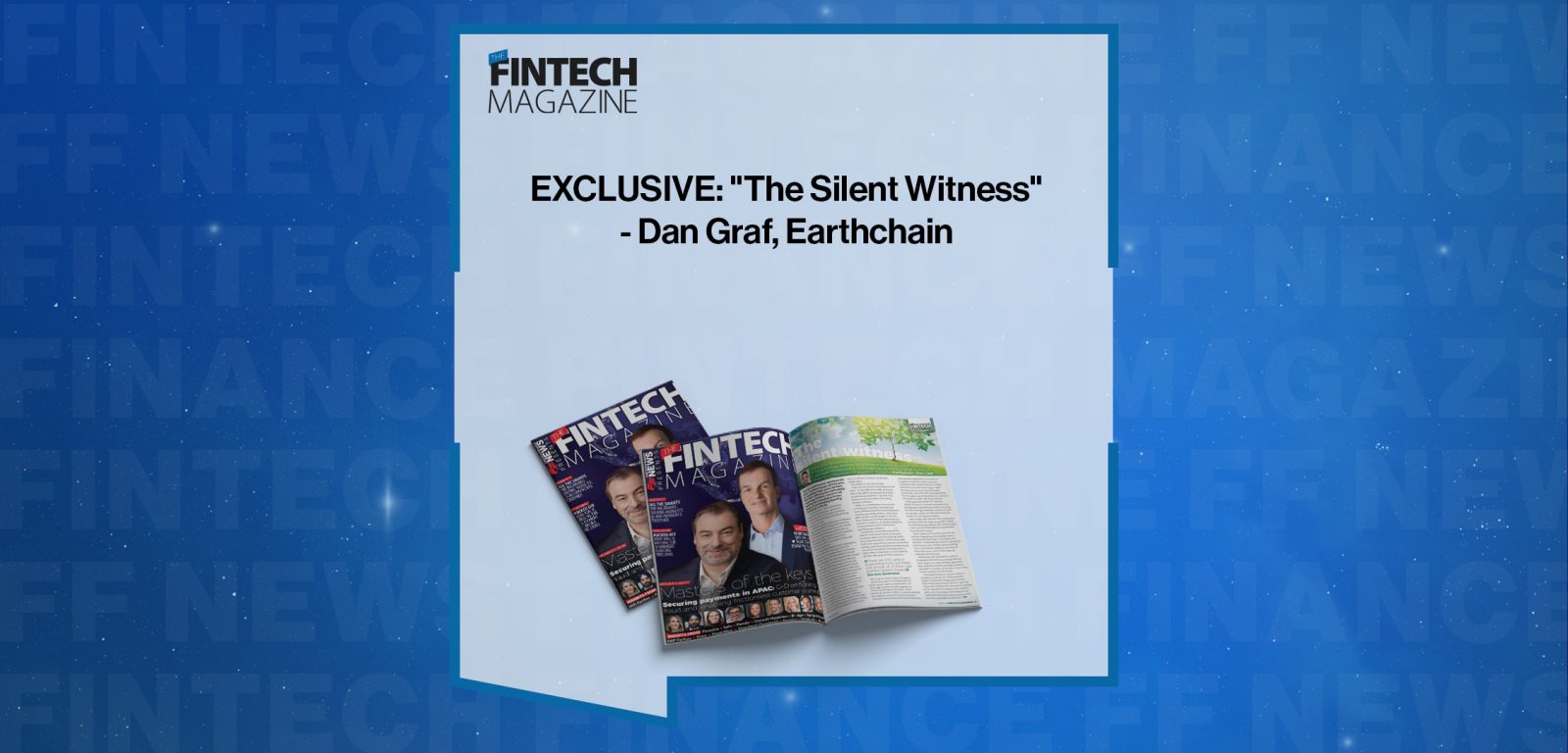
EXCLUSIVE: “The Silent Witness” – Dan Graf, Earthchain in ‘The Fintech Magazine’
Transaction data betrays the environmental cost of doing business. However, SMEs have struggled to collect it, share it and have confidence in it. That might be about to change in the UK, thanks to a collaboration of providers, including Earthchain’s Dan Graf
The US exited the Paris Agreement this year. President Trump’s administration is unpicking ‘woke’ green capitalism. The EU is softening new sustainability reporting timelines. And we’re still waiting for a consultation to even begin on Sustainability Reporting Standards in the UK.
On the face of it, there’s diminishing incentive for businesses – particularly smaller businesses in western economies – to put environmental accounting at the top of their to-do list. And yet, a survey by Workiva, an integrated reporting platform, among 1600 executives worldwide, showed that 85 per cent of them still intend to move forward with plans to disclose greenhouse gas emissions, regardless of global politics.
This is even true for executives who do not need to comply with climate regulations. Among 286 executives whose organisations did not fall within the scope of the EU’s Corporate Sustainability Reporting Directive (CSRD), 75 per cent still intended to at least partially align their reporting with the mandate. And, in the US, where the Securities and Exchange Commission appears to have lost its bottle over introducing landmark climate disclosure rules that have been on hold since April 2024, 81 per cent of executives expected to at least partially disclose scope 1 and 2 emissions with some level of assurance.
While it’s difficult to go green when you’re tied up in red tape, it seems bosses are now being braver than the leaders elected to force their compliance. What many still often lack, however, is an automated way of collecting, recording and then auditing or reporting assured, real-economy carbon data – and in a way that supports decision-making and can be shared safely with third parties, such as customers, investors and lenders, notably banks.
The problem is not a lack of tools.
“There are 270 carbon accounting tools out there… and almost all of them are glorified spreadsheets “
“There are 270 carbon accounting tools out there – it’s very difficult for SMEs to choose what is the right fit. And almost all of them are glorified spreadsheets,” says Dan Graf, founder of UK-based carbon accounting provider Earthchain.
Rather, it’s a combination of issues that is holding back reporting. And they have accumulated precisely because policymakers have focussed on big polluters, rather than SMEs, to meet net zero targets. In the UK, that’s despite the fact that, collectively, the country’s 5.5 million or so smaller enterprises are responsible for half of all business greenhouse gas emissions. A proliferation of private protocols for collection and measurement of emissions, no standard data format for sharing carbon accounting information, no third-party data verification requirements, and no trusted data sharing system (among other inconsistencies), have led to low-quality information that is often neither comparable nor actionable by the SME, their bank nor their customers.
But in the UK, there’s signs of progress. Earthchain is part of a collaboration of banks, carbon experts, government, and other organisations brought together by a not-for-profit called Icebreaker 1 (IB1).
Launched at Davos in 2020, it exists to develop the standards and frameworks to connect assurable real economy and financial economy data between organisations and sectors in support of the low-carbon economy. Its financial data scheme, Perseus, enables automated emissions reporting for SMEs by using rules and processes that make comparable, assurable data sharing possible, be it through accounting platforms, emissions calculators, or other reporting software.
Developed with Bankers for Net Zero (B4NZ), Perseus is currently running its first lending pilot, streamlining carbon accounting for SMEs through automatic retrieval of smart energy data, which can then be shared with funders to unlock green finance. More widely, IB1 addresses the combination of issues that have undermined SME’s efforts to understand and address their climate impact – then use that information to improve their financial performance.
That’s where Graf sees the real value. He believes integrating sustainability metrics into financial reporting is crucial because it provides a comprehensive view of a company’s performance. Part of that is demonstrating how sustainability initiatives contribute to financial success, such as how reducing emissions can cut costs.
Earthchain’s API-led platform, which is integrated with online accounting software Xero, helped one client recently ingest more than 4,000 data points across the business’s operation in a matter of minutes. It was a ‘holy smoke’ moment for the founder.
“Tracking emissions is not just a value or compliance tick-box. It’s critical data that shapes his growth strategy and is directly tied to their performance metrics,” says Graf. “Now, with visibility of his emissions in real time, he can report to his investors and customers with much more rigour and confidence and make more informed business decisions that drive the sustainable growth plans.”
This article was published in The Fintech Magazine Issue 34, Page 35
People In This Post
Companies In This Post
- FF Tattoo Studio: Fenergo on Native ID&V and the Fight Against FinCrime Read more
- Generative AI in Banking: From POCs to Front-Office Impact Read more
- EXCLUSIVE: “Chain Reaction” – Sergey Nazarov and Fernando Vazquez, Chainlink in ‘The Paytech Magazine’ Read more
- FF Tattoo Studio: Datavillage on Privacy-First Data Collaboration and Faster Fraud Investigations Read more
- Chancellor Unveils Plans to “Supercharge” Growth of Innovative Financial Services Firms Read more








